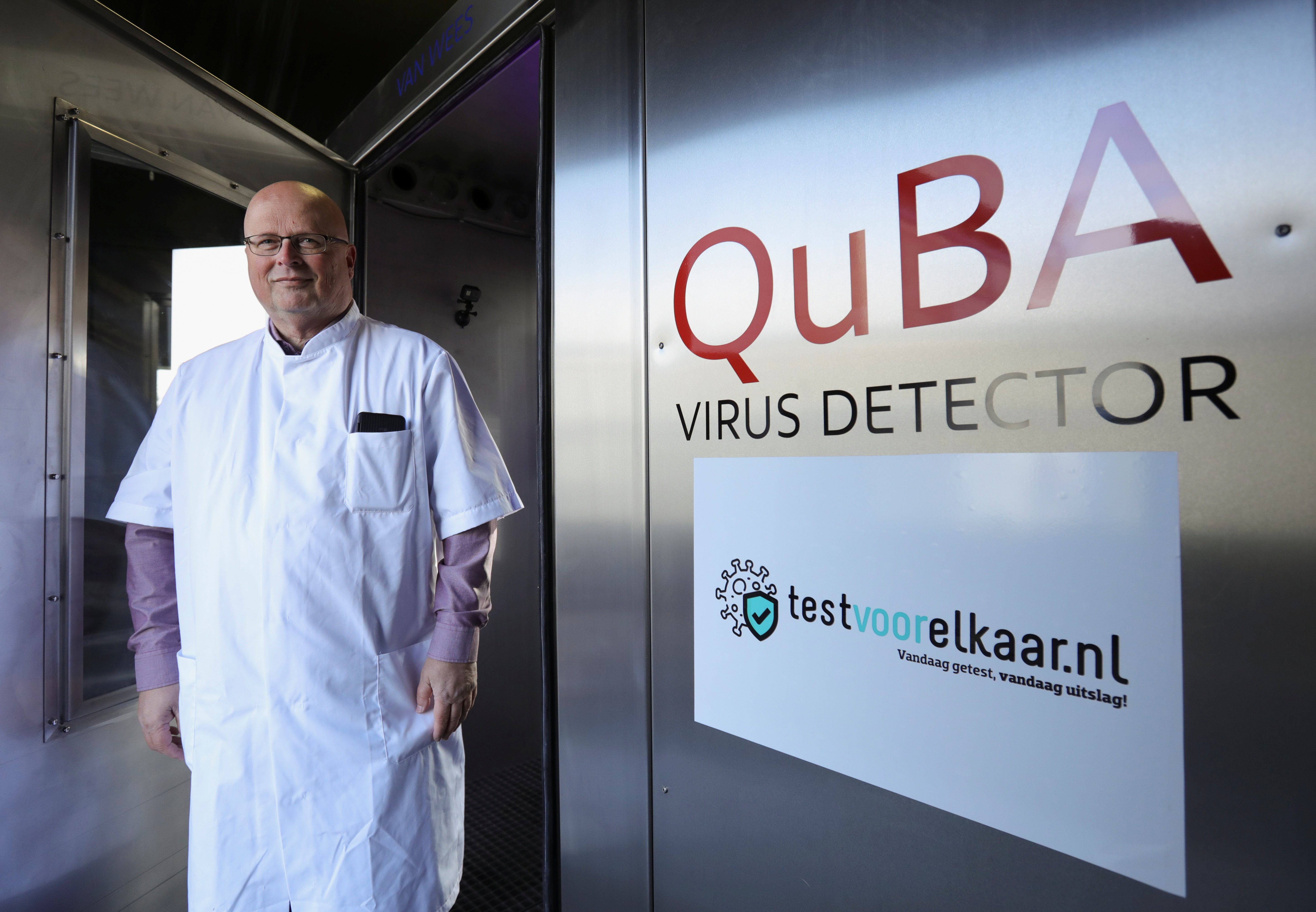Dutch inventor hopes he has found new Covid test where people scream or sing in airlocked cabin
Peter van Wees hopes his method will be faster and easier than upleasant nasal swabs

Your support helps us to tell the story
From reproductive rights to climate change to Big Tech, The Independent is on the ground when the story is developing. Whether it's investigating the financials of Elon Musk's pro-Trump PAC or producing our latest documentary, 'The A Word', which shines a light on the American women fighting for reproductive rights, we know how important it is to parse out the facts from the messaging.
At such a critical moment in US history, we need reporters on the ground. Your donation allows us to keep sending journalists to speak to both sides of the story.
The Independent is trusted by Americans across the entire political spectrum. And unlike many other quality news outlets, we choose not to lock Americans out of our reporting and analysis with paywalls. We believe quality journalism should be available to everyone, paid for by those who can afford it.
Your support makes all the difference.A Dutch inventor thinks he has come up with an alternative to unpleasant nasal swab tests for coronavirus: he asks people to step into an airlocked cabin and scream or sing.
Peter van Wees hopes his method will be a faster and easier way to screen for the virus.
After asking participants to scream or sing in an airlocked cabin, an industrial air purifier collects all of the particles emitted which are then analysed for the virus.
"If you have coronavirus and are infectious and [are] yelling and screaming you are spreading tens of thousands of particles which contain coronavirus," said Mr Van Wees.
The serial entrepreneur has set up his booth next to a coronavirus testing centre on the outskirts of Amsterdam to trial his invention on people who have just been tested.
"It's always very nice to scream, when nobody can hear you though," said Soraya Assoud, 25, who needed proof of a negative coronavirus test for a trip to Spain.
Mr Van Wees said although lots of small particles from the person's clothes and breath are detected, an infection shows up as a cluster around the size of the coronavirus. The process takes about three minutes.
The virus is identified by its size using a nanometre-scale sizing device.
He said he sees the machine as a potentially useful screening tool at concerts, airports, schools or offices.
Geert Westerhuis of the Netherlands' National Institute for Health (RIVM), which is not involved in the project, said it is looking at an array of testing strategies and would welcome a fast, functioning test that was highly accurate.
But "how this apparatus works - we can't estimate it because we know too little about it," he said.
A breath test requiring the participant to blow into a tube was approved last month by health authorities in Amsterdam, but it has not yet been rolled out nationally due to troubles with "false negatives".
Mr Van Wees is working with a private company to collect evidence for his strategy.
Ms Assoud, on her way to Spain, said either way, the experience in Mr Van Wees's machine had been pleasant.
"I think it's a good way of meditation as well ... it's fun!"
Additional reporting by Reuters

Join our commenting forum
Join thought-provoking conversations, follow other Independent readers and see their replies
1Comments